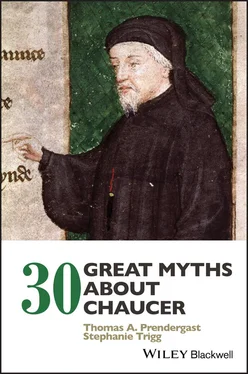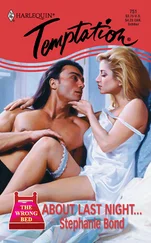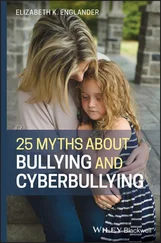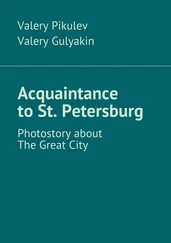Recently, however, it has been demonstrated that the linkage between bad marriages and St. Leonard in Chaucer is probably the invention of an early, prominent editor and critic. In fact, Chaucer was likely invoking Leonard in his traditional role of the patron saint of travelers. 9 But what of the mention of Philippa’s supposed hectoring voice in Book II? At best, this reference is highly speculative. It may even be seen to be doubtful if we understand Chaucer’s claim that the Eagle spoke to him “in mannes vois” as referring to the gender of the voice (as opposed to a more neutral understanding of the phrase as “in a human voice”). 10
Even if we do not understand The House of Fame as referring to marital woes, there is, as we saw earlier, still a good deal of writing that explicitly portrays marriage as a troubled and troubling institution. One might well argue that the Wife of Bath’s comments on marriage or the Host’s suggestion that his wife is a shrew are colorful inventions reflective of the fictional world of the Canterbury Tales , rather than personal expressions by Chaucer about Chaucer. But other works seem to connect these ideas about marriage to Chaucer’s personal life. Lenvoy de Chaucer a Bukton , a verse letter ending with an envoy to either Robert or Peter Bukton (both had connections with the court), has Chaucer claiming that though he had promised to tell Bukton of “the sorwe and wo that is in marriage,” he will not do so – proceeding by a rhetorical figure known as paralipsis (the summary mentioning of a thing while professing to omit it). He characterizes marriage as a prison and invokes the image of Satan gnawing on his chain as an accurate representation of the married man. At the end (in the envoy) he recommends to Bukton, “The Wyf of Bathe I pray yow that ye rede / Of this matere that we have on hond” (ll. 29–30). This connection of personal epistolary advice with the fictional subcreation of the Canterbury Tales is undoubtedly meant to be humorous, yet it is worth remembering that in Chaucer’s envoy attached to the Clerk’s Tale (which, as we have seen, made such an impression on J.W. Hales), the Wife of Bath’s Prologue is similarly referenced. These forms of direct Chaucerian address, mingled with the fictional world of the pilgrimage, suggest a connection between fictional utterances by Chaucer’s characters and the discourse of Chaucer himself. It might then seem unsurprising that both the occasional poems of Chaucer, as well as his larger work, were mined by critics for details about the poet’s marital status.
Yet simply to collapse poetic production with lived life would suggest that there is no distinction between the two. Chaucer’s normally unreliable early nineteenth‐century biographer, William Godwin, makes precisely this point about reading the Envoy : “It would be unjust, however, from his playfully expressing an aversion to marriage in the character of a satirist, to infer that he had not lived in perfect harmony and happiness with the mother of his children.” 11 Nineteenth‐ and twentieth‐century critics were well aware of the distinction between a poetic persona and the person of the poet. Why, then, did they indulge in this treasure hunt for clues about Chaucer’s personal life? We might take a hint from the great early twentieth‐century critic George Lyman Kittredge. Referencing Chaucer’s comments about marriage in the Envoy , he says that “probably such utterances were no more seriously meant than the jests which are passed upon an intending bridegroom by his intimates at pre‐nuptial ‘stag dinners’ now‐a‐days.” 12 Chaucer’s audience here is male and engages in a casual misogyny that might be in bad taste (as Kittredge also notes), but cannot be taken too seriously – certainly, it should not be read as autobiography.
Yet Kittredge, of course, is making biographical claims about Chaucer. He may dismiss the idea that Chaucer’s own marriage was troubled, but he presents a portrait of Chaucer as one who replicates misogynistic and misogamic (anti‐marital) commonplaces in the service of male comradeship. As any number of critics have noted, this is the way misogyny works: the discourse of anti‐feminism is often the rhetoric of the joke – “not meant to be taken seriously” even while it replicates misogynistic stereotypes. These stereotypes, then, are monolithic representations of all women that are, of course, fictional. Yet, as Chaucer himself often demonstrates, these fictions retain their power because people in some sense believe in them. On one level, we know that the Envoy to Bukton is a joke. And we also know that Harry Bailly’s complaint about his ironically named wife, Goodelief (Goodlove), is just a bit of funny “business” after a serious tale about a truly “good” wife. And yet, as we have seen, our lack of knowledge about the marriage has led critics (and poets) to assign historical value to claims about “Mrs. Chaucer” that are ultimately no more than conventions and stereotypes. Not incidentally, these readings have often been made by men, who have perpetuated stories about “the woes of marriage” perhaps to consolidate their own relationship with what has historically been a largely masculine audience.
1 1John Masefield , Chaucer (Cambridge: Cambridge University Press, 1931), 33.
2 2J.W. Hales, Dictionary of National Biography (Oxford: Oxford University Press, 1885–1900), 10:158.
3 3F.J. Furnivall , Trial‐Forewords to my “Parallel‐Text Edition of Chaucer’s Minor Poems” (London: N. Trübner, 1871), 31.
4 4And, in Hales’s case, the Envoy is identified in the manuscripts as “Lenvoy de Chaucer,” though what this actually means is a matter of interpretation.
5 5Martin M. Crow and Clare C. Olson , eds., Chaucer Life‐Records (Oxford: Oxford University Press, 1966), 68.
6 6Marion Turner , Chaucer: A European Life (Princeton, NJ: Princeton University Press, 2019), 125.
7 7Derek Pearsall , The Life of Geoffrey Chaucer: A Critical Biography (Oxford: Blackwell, 1992), 142.
8 8Crow and Olson, Chaucer Life‐Records, 545–6. For Gaunt’s patronage, see Turner, Chaucer: A European Life, 205.
9 9Scott Lightsey, “Chaucer’s Return from Lombardy, the Shrine of St. Leonard at Hythe, and the ‘corseynt Leonard’ in the House of Fame, lines 112–18,” Chaucer Review 52 (2017), 188–201.
10 10David Lawton , Voice in Later Medieval Literature: Public Interiorities (Oxford: Oxford University Press, 2016), 40.
11 11William Godwin, Life of Geoffrey Chaucer: The Early English Poet, 4 vols., 2nd edn. (London: Printed by T. Davison for R. Phillips 1804), 2: 163.
12 12George Lyman Kittredge , “Chaucer’s Envoy to Bukton ,” Modern Language Notes 24, no. 1 (January 1909), 14–15 , here 15.
Myth 5
CHAUCER’S SON THOMAS WAS JOHN OF GAUNT’S BASTARD
In the biography attached to Thomas Speght’s 1598 version of Chaucer’s works there appears this curious, almost throwaway line: “Yet some hold opinion (but I know not vpon what grounds) that Thomas Chaucer was not the sonne of Geffrey Chaucer, but rather some kinsman of his, whome hee brought up.” 1 Speght almost immediately distances himself from this “opinion,” arguing that “this pedigree [the Stemma peculiare Gaufredi Chauceri that appears on the previous page] by the hands of Master Glouer alias Somerset, that learned Antiquarie, as also the report of Chronicles shew it to be otherwise.” 2 If Speght was interested in offering reassurance about the parentage of Thomas Chaucer, however, his refutation of this discarded opinion had the opposite effect.
In the preface to his magisterial edition of Chaucer in 1775, Thomas Tyrwhitt lamented that we did not know the date of Chaucer’s marriage because if we did, “we should know better what to think of the relation of Thomas Chaucer to our author. Mr. Speght informs us ‘that some hold opinion that Thomas C. was not the sonne of Geffrey’ and there are certainly many circumstances that incline us to that opinion.” 3 There is no further reference to Thomas Chaucer’s doubtful parentage until 1872, when F.J. Furnivall announced in the pages of Notes and Queries that “there is not one scrap of direct or indirect evidence that the wealthy Thomas Chaucer was the son, or any relative, of the poet.” 4 Ten years later, Mary Elizabeth Haweis cites a letter from Henry Beaufort that confirms Thomas Chaucer was cousin to the children of John of Gaunt and Katherine Swynford. This seems to confirm his status as the son of Geoffrey and Philippa Chaucer, since she was sister to the Duchess of Lancaster, Katherine Swynford. Yet, strangely, Haweis says, “such hypotheses rather increase the cloud which still enshrouds Thomas Chaucer’s birth.” 5 Whether or not Speght’s refutation of the “opinion” and Tyrwhitt’s and Furnivall’s speculative notes constitute a “cloud” might be debated, but in Haweis’s eyes the suspicion about Thomas’s parentage could lead in only one direction. 6 Using language that Mary Flowers Braswell has termed “purposefully ambiguous,” she implied that Thomas Chaucer was not some kinsman of Chaucer’s but John of Gaunt’s son. 7
Читать дальше












